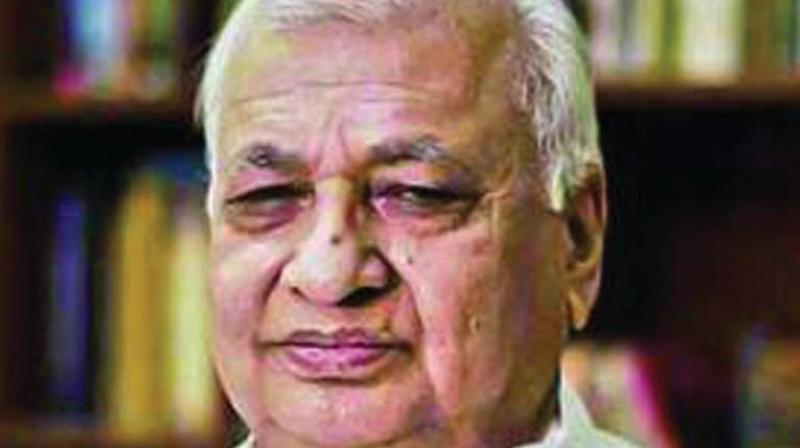Let governors not be Centre’s political arm

Sunday’s appointment of five governors by President Ram Nath Kovind confirms that the ruling party’s partisans, or those who may have done it ideological or political service, will be rewarded. This is naturally in the expectation that the appointees may continue to be of use to the BJP.
The appointment of governors is in the gift of the Centre, and there are no neutral governors any more. Governors are now seldom men or women deemed to be of high worth who may be relied upon to be careful umpires in overseeing that governance in a state is run according to the Constitution.
Under the BJP, mostly those of RSS background have been made governors, but sometimes others too who have given signal service to the present establishment. Perhaps the best example is Satya Pal Malik in J&K. The Centre could not have found a more subservient politician of non-RSS background to do its bidding — one who, instead of keeping a reserve expected of his office, thinks nothing of jumping into the fray even for an unwarranted wrestle with the BJP’s political opponents.
It’s in this context that all eyes may be on Arif Mohammed Khan, who is going to the Kerala Raj Bhavan. Mr Khan was once briefly in the BJP. From his early days he was an anti-Congress politician who was with the Congress for some years in the time of both Indira and Rajiv Gandhi, and resigned as a minister over the Shah Bano issue.
Seen as an advocate of reform in India’s Muslim society, and also as an intellectual politician frequently known to privilege India’s cultural persona above religion (this suits the RSS), it will be watched with interest if he plays a role for the BJP in Kerala comparable to Mr Malik in Kashmir.
The RSS-BJP, desperately seeking to electorally advance fast in hitherto difficult territory — West Bengal, Kerala, Tamil Nadu, Andhra Pradesh and Telangana — may have such expectations. In Kerala, the Left and the Congress have been sharp competitors, but today both try to tailor politics to not affront Hindu religious sentiments even unwittingly, in order to keep the BJP at bay. In such a scenario, the new governor’s role will be keenly watched.
It is speculated that Maharashtra governor Ch Vidyasagar Rao, a former state BJP chief who is vacating Mumbai’s Raj Bhavan, will play an active political role despite his 77 years to help the BJP get ahead of the Congress, the state’s reduced second party. If so, this will be against the BJP’s unwritten rule of not allowing leaders above 75 to remain in active politics.
By elevating Tamil Nadu BJP chief Tamilisai Soundararajan as Telangana governor, the saffron party may be sending goodwill vibes to a state where it’s a political infant, and possibly also clearing the way for a younger BJP leadership in Tamil Nadu. Dr Tamilisai will do well to confine herself to her constitutional duties.

